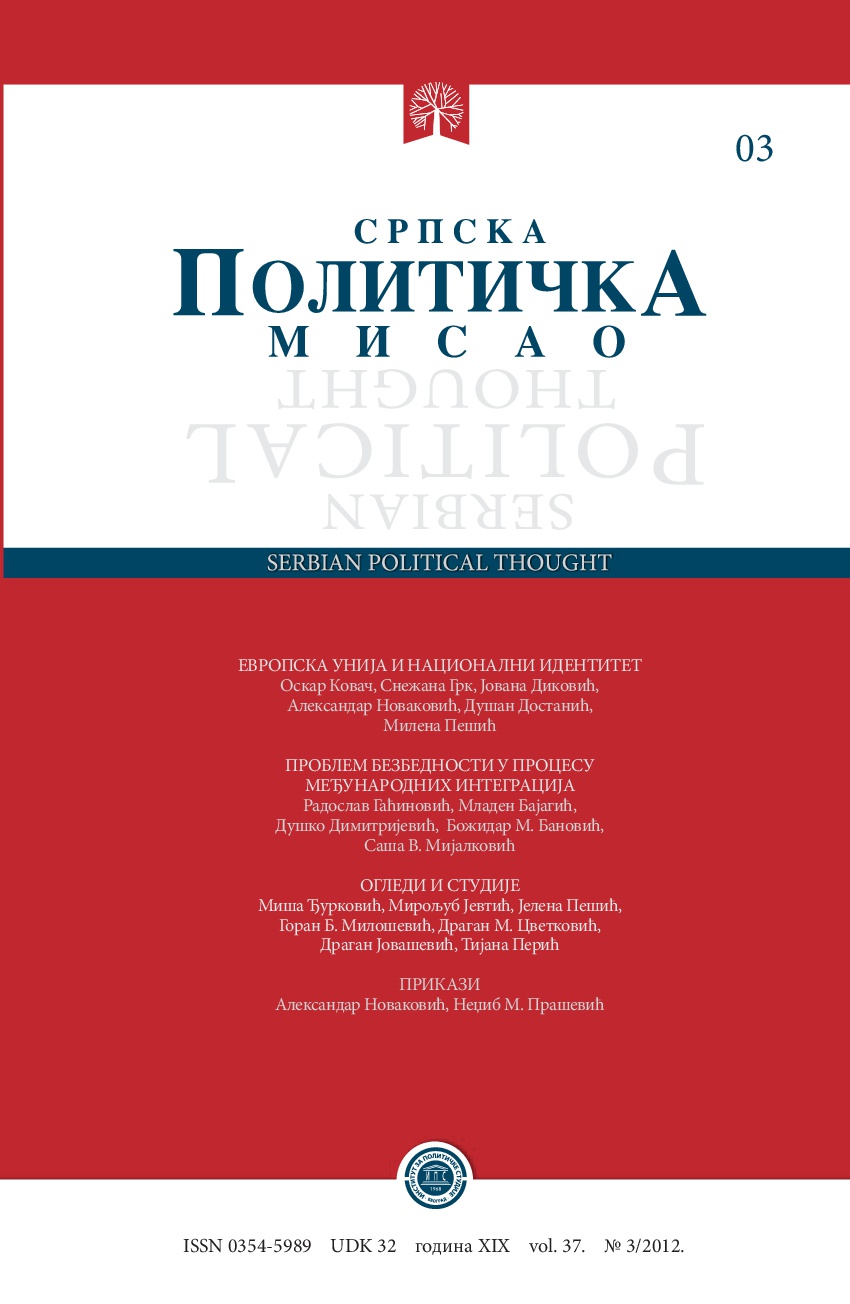Политичке последице албанског насиља на Балкану
Political Consequences of the Albanian Violence on the Balkan
Author(s): Radoslav Gaćinović, Mladen BajagićSubject(s): International Law, Middle Ages, Recent History (1900 till today), Studies in violence and power, Inter-Ethnic Relations, EU-Approach / EU-Accession / EU-Development
Published by: Институт за политичке студије
Keywords: Serbia; Kosovo and Metohija; Balkan; security; seizure; violence; terrorism;
Summary/Abstract: This paper represents the attempt of the authors to point to the political consequences of the long-term use of the violence on the Balkan by the Albanian separatist terrorist movement towards the Serbs. Its aim is also to point to the great mistakes of western powers which have continuously encouraged the Albanians on the Balkan to use violence. In the second part of the XX century, they have the most directly encouraged the national prepotency of the Albanians, by encouraging them to conduct the Albanian terror, whose ideology is Albanism, and the form is the ultra-right or fascistic terrorism. It took the most intense form in the second half of the XX century and at the beginning of the XXI century, when the political consequences of that violence warn and threat to the security of the region. The threat to the security of the Balkan at the beginning of the XXI century is even more expressed, and the violence over Serbia by some western powers is even more intense. Since the formation of the Serbian state on the Balkan, the Serbs have always struggled only for the existence and survival. By analizing the historical documents about the expatriation of the Serbs from Kosovo and Metohija in the last three centuries (1690-2006), one can conclude that from the former Old Serbia (today Kosovo and Metohija), approximately 1.150.000 Serbs have been violently expelled, about 200.000 have been killed, and about 150-200.000 have been converted to Islam. In the Middle Ages there was no special name for this area, except for the general name Serbia. At the beginning of the XXI century, the Albanian separatist terrorist movement represents the great threat to the security on the Balkan, especially after the seizure of 10.887 km2 of the territory of Serbia with the help of the western allies. The Serbs have the constitutional and historical right on Kosovo and Metohija, which is always older than the ethnic right, and the international law is also on the side of Serbia, because the UN Charter forbids the violent seizure of parts of sovereign states. The size of a national community is not determined by its size within one part of the state, but in comparison to the state as a whole, and according to that criteria, the Albanians constitute the national minority in Serbia. No national minority in the world has had the right to its own state. A national community cannot declare itself a nation or a national minority. The political consequences of the effects of the Albanian separatist terrorist movement on the Balkan at the beginning of the XXI century warn UN and EU, because the disintegration processes on the Balkan haven’t been finished, according to their opinion, and it is well known that the change of the borders is followed by long and exhausting wars.
Journal: Српска политичка мисао
- Issue Year: 2012
- Issue No: 3
- Page Range: 133-155
- Page Count: 23
- Language: Serbian

